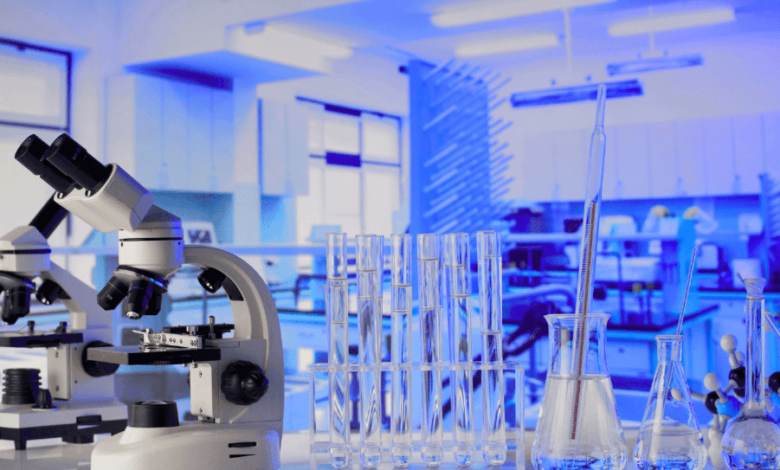Lab Equipment Dealers: Leading Suppliers for Quality and Innovation

Lab equipment dealers play a crucial role in supplying research institutions, educational facilities, and healthcare providers with the tools they need to operate efficiently. These dealers offer a wide range of products, including new, used, and refurbished laboratory instruments, consumables, and safety equipment. Choosing the right dealer means access to reliable products, personalized support, and timely service.
Many lab equipment dealers provide specialized services, such as equipment maintenance, customization, and technical assistance. This ensures that instruments are maintained at optimal performance, which is vital for accuracy and safety in scientific work.
In addition to national and international suppliers, some dealers focus on local or regional markets, offering advantages like faster shipping and dedicated customer service. Understanding the reputation, product range, and support services of a dealer can significantly impact the success of a laboratory’s operations.
Choosing Lab Equipment Dealers
Selecting lab equipment dealers requires assessing multiple criteria to ensure quality, service, and suitability for specific laboratory needs. The decision involves understanding dealer types, key selection factors, and verifying credential authenticity to support reliable lab operations.
Key Factors to Consider
Reliability and product quality are fundamental when choosing a lab equipment dealer. Buyers should evaluate the dealer’s product range to ensure it aligns with the lab’s required technologies and instruments. Competitive pricing is important but must balance with product durability and precision.
Customer service availability is crucial. A responsive dealer who can provide technical guidance, answer questions promptly, and assist with troubleshooting reduces downtime and operational disruptions. Warranty coverage, after-sales support, and maintenance services should also be clearly outlined.
Dealers that offer customization and flexibility for specialized equipment needs are valued, particularly for research or pharmaceutical labs requiring tailored solutions.
See also: Dig Trench Techniques for Efficient Excavation and Safety
Types of Lab Equipment Suppliers
Lab equipment suppliers generally fall into three categories: manufacturers, authorized dealers, and third-party resellers.
- Manufacturers produce equipment and may offer direct sales, customization, and long-term warranties.
- Authorized dealers act as official distributors, often providing manufacturer-sanctioned maintenance and service.
- Third-party resellers typically offer a range of brands, including refurbished or overstock items, potentially at lower prices but with variable warranty and support levels.
Understanding these types helps labs choose a supplier that matches their requirements for service, pricing, and equipment specificity.
Evaluating Dealer Accreditation
Dealer accreditation ensures legitimacy and adherence to industry standards. Verified accreditation from recognized bodies or direct manufacturer authorization signals reliability.
Check for certifications related to quality management, such as ISO standards, and compliance with regulatory requirements relevant to lab equipment. Dealers with proper accreditation typically offer genuine products and enforce rigorous quality control.
Accreditation also often correlates with access to official technical support, training, and genuine spare parts, which are vital for maintaining equipment accuracy and longevity.
Services and Support Offered by Lab Equipment Dealers
Lab equipment dealers provide critical services that optimize the use and longevity of laboratory instruments. These services range from initial setup to ongoing maintenance and responsive after-sales assistance, ensuring labs maintain operational efficiency and compliance.
Installation Services
Lab equipment dealers often handle the installation of various instruments, including complex and sensitive machinery. This service typically involves site assessment to confirm suitability, proper configuration, and alignment with laboratory standards.
The installation process may include electrical setup, software integration, and testing to guarantee that equipment functions correctly from the start. Dealers sometimes offer training during or after installation, helping laboratory staff understand operational protocols and safety measures.
Proper installation minimizes errors and downtime. It also ensures compliance with manufacturer specifications and regulatory requirements, which is crucial for research integrity and safety.
Maintenance and Repair Support
Regular maintenance is vital to keep lab equipment reliable and accurate. Dealers generally offer scheduled service contracts, including calibration, cleaning, and preventive checks that align with industry standards.
When unexpected issues occur, repair support is also provided. This can include on-site repairs or the option to send equipment to a specialized service center. Quick diagnosis and part replacement reduce downtime and protect the integrity of experiments.
Many dealers provide detailed documentation of maintenance and repair work, supporting lab audits and certifications. They may also offer customizable maintenance plans tailored to the facility’s workflow and equipment profile.
After-Sales Service Options
After-sales service includes ongoing technical support, troubleshooting, and access to spare parts. Dealers often establish communication channels like hotlines or online portals for prompt assistance.
Warranty management is typically handled by dealers, including coverage extensions and claims processing. Some dealers provide equipment rental or loaner options during extended repairs to minimize operational disruptions.
In addition, after-sales support may include software updates, upgrades, and training sessions to keep the laboratory team current with new features or compliance changes. These services contribute to sustained equipment performance and user confidence.





